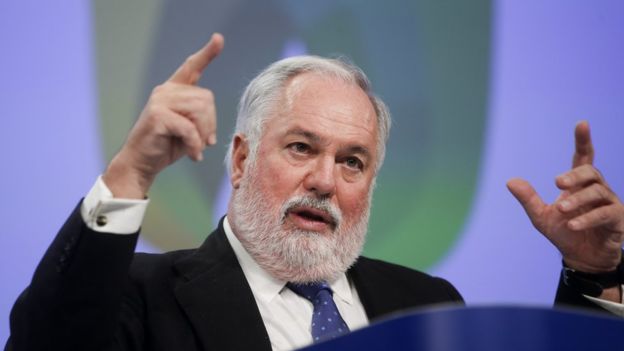Negotiators at the Paris climate summit aim to wrap up a global agreement to curb global warming on Saturday after talks overran, hosts France said.
“Things are moving in the right direction,” said French Foreign Minister Laurent Fabius, who is chairing the summit.
Among the unresolved issues is compensation for nations most affected by climate change.
A deal signed in Paris would come into being in 2020.
Participants at COP21 – as the UN conference is called – have been working on a draft text, prepared by the French presidency, since Wednesday.
This was seen as a significant moment after discussions that began in 2011 about a new global agreement that would stake out a long-term strategy for dealing with climate change.
Getting shorter
The latest version draft document, delivered after consultations throughout Thursday, was 27 pages – considerably shorter than previous versions.
It says that temperature rises must be kept “well below 2C above pre-industrial levels and to pursue efforts to limit the temperature increase to 1.5C”.
The number of square brackets, indicating significant disagreement, had been reduced to around 50, a major improvement on Saturday when they ran to more than 900.
But there are still considerable difficulties about issues including climate finance and the question of demarcation between developed and developing countries.
Called “differentiation”, richer nations want emerging economies should take on more of the burden of cutting emissions and providing finance to the very poor nations hit by the impacts of rising temperatures.
The richer countries were also insisting on a single system of verification of promises for all countries.
“We feel that when parties have committed themselves to a national target that reflects their ambitions and abilities, they must be ready to tell the global community what type of progress is being made,” said Elina Bardram, the EU’s chief negotiator told reporters.
“We need to have accounting standards and principles that are common to all – otherwise you are simply comparing apples with pears.”
It had been hope a deal could be reached Friday but organisers said they wanted to give delegates more time for consultations rather than stick to the original schedule.
Some campaigners were not happy with Thursday’s draft, saying it denied “climate justice”.
“Rich countries have a responsibility to ensure a fair global deal for everyone, not just themselves, and as we move into these final hours of negotiations poorer countries must not settle for anything less,” said Adriano Campolina, from ActionAid.
But Helen Szoke from Oxfam called it an “encouraging development”.
“The draft has affirmed the need to set quantified funding goals for both climate change mitigation and adaptation for the years after 2020,” she said.
–
Source: BBC


